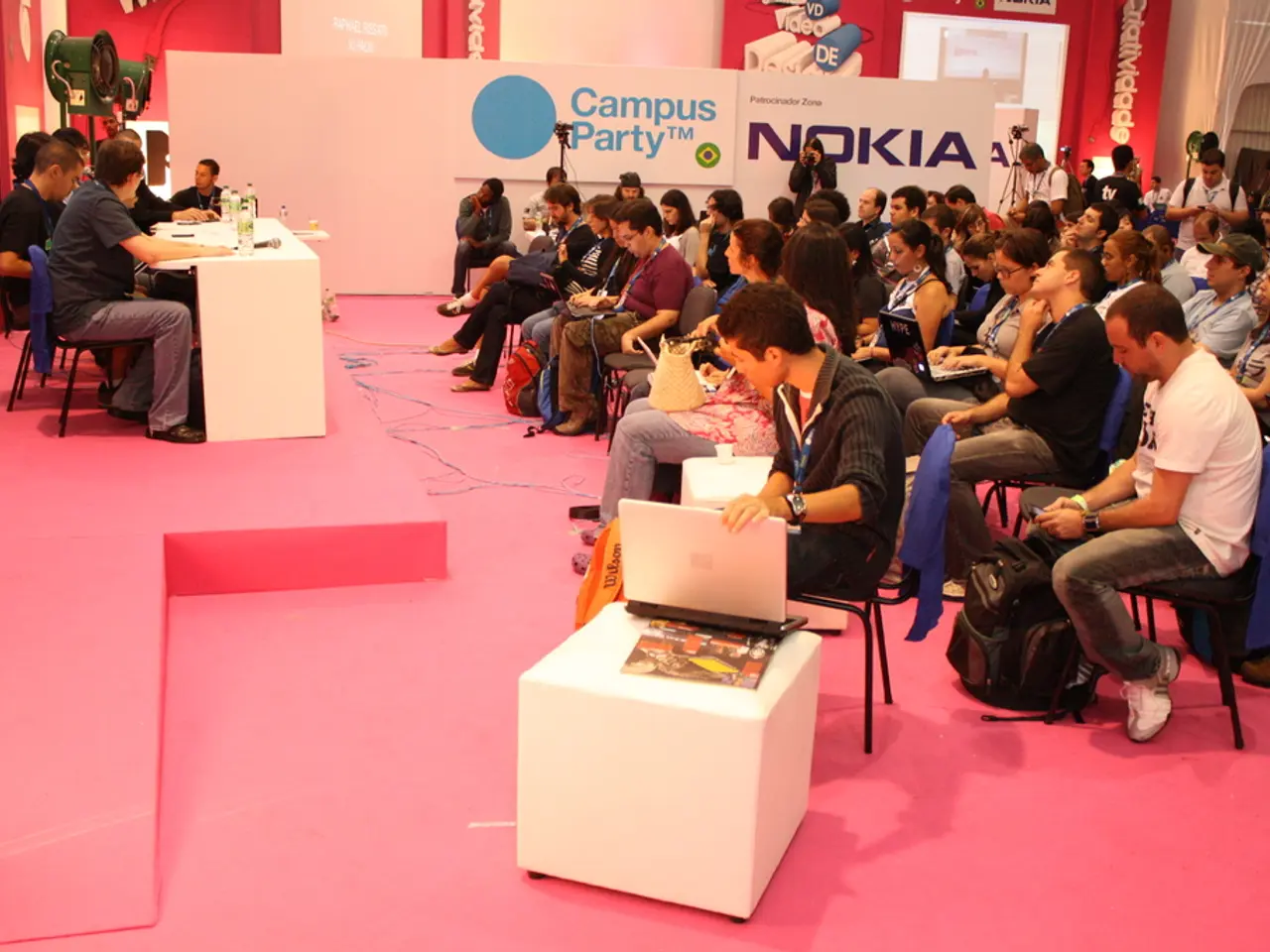Italy inaugurates Ukraine reconstruction forum amid lingering queries regarding American military assistance
The fourth annual Ukraine Recovery Conference (URC2025) took place in Rome on July 10-11, 2025, with a focus on supporting Ukraine's rapid recovery and long-term reconstruction following Russia's invasion. Hosted by Italy, the conference brought together political and business leaders, international organisations, and civil society, with the aim of mobilising international support and investment for Ukraine's recovery.
The conference emphasised a whole-of-society approach, engaging governments, international organisations, businesses, and civil society to work together towards Ukraine's rebuilding. The key focus areas of the conference were based on the four Berlin Dimensions established in previous conferences: business, human, local and regional, and EU dimensions.
The business dimension aimed to mobilise the private sector for reconstruction and economic growth. The human dimension addressed the needs of the Ukrainian people, while the local and regional dimension supported regional development. The EU dimension focused on aligning reforms with EU accession processes.
The conference also highlighted partnerships across various sectors, including education, health, and energy. The aim was to develop educational infrastructure, improve healthcare services amidst the ongoing conflict, and enhance energy security and infrastructure.
The European Commission announced a €2.3 billion agreement package, expected to unlock up to €10 billion in investments, along with the establishment of the new European Flagship Fund for Ukraine's reconstruction. These initiatives aim to bolster Ukraine's resilience and align its recovery efforts with European integration goals.
Notable attendees included German Chancellor Friedrich Merz, Polish Prime Minister Donald Tusk, Dutch Prime Minister Dick Schoof, European Commissioner Ursula von der Leyen, as well as economy and foreign ministers from other European countries.
In addition, French President Emmanuel Macron and several participants of the Rome conference will participate in a videoconference call on Thursday for the "coalition of the willing," a group of countries willing to deploy troops to Ukraine to police any future peace agreement with Russia.
The success of the coalition's operation hinges on US backup with airpower or other military assistance, but the Trump administration has made no public commitment to provide support. Retired Lt. Gen. Keith Kellogg, President Donald Trump's special envoy to Ukraine and Russia, was in Rome and met with Ukrainian President Volodymyr Zelensky on Thursday.
Alexander Temerko, a Ukrainian-British businessman and former defense minister under Boris Yeltsin, stated that the conference is focusing on specific industries and issues, such as de-risking investment, rare earth minerals, pharmaceuticals, domestic defense, energy, mining, metallurgy, infrastructure, and transport.
The aim of the conference is to pair international investors with Ukrainian counterparts to discuss and establish joint partnerships for rebuilding and modernising Ukraine, with the ultimate goal of helping Ukraine achieve necessary reforms for admission into the European Union. The conference is expected to have 100 official delegations, 40 international organisations and development banks, 2,000 businesses, civil society, and local Ukrainian governments in attendance.
Italy has announced several initiatives before the meeting, including a memorandum of understanding on penitentiary cooperation with Kyiv and a deal to build a new pavilion for the Odesa children's hospital and provide medical equipment for it via a 30 million euro credit.
Trump expressed frustration with Pentagon officials for announcing a pause in some deliveries last week, as he felt it wasn't properly coordinated with the White House. However, just days after Washington paused critical weapons deliveries to Kyiv amid uncertainty over the US administration's commitment to Ukraine's defense, Trump announced that the US would have to send more weapons to Ukraine.
Kurt Volker, the former US special representative for Ukraine negotiations, suggested that the conference could be successful if a coordinating agency is established to provide follow-up and give "focused political leadership" to Ukraine's recovery. The fourth URC2025 in Rome marks a significant step towards rebuilding Ukraine and aligning its recovery efforts with European integration goals.
- The fourth URC2025 in Rome emphasized a whole-of-society approach, engaging political, business, and civil society leaders to work together for Ukraine's rebuilding.
- The conference highlighted partnerships across various sectors, including education, health, energy, and business, aiming to rebuild and modernize Ukraine.
- The business dimension of the conference aimed to mobilize the private sector for reconstruction and economic growth in Ukraine.
- The European Commission announced a €2.3 billion agreement package, expected to unlock up to €10 billion in investments, along with the establishment of the new European Flagship Fund for Ukraine's reconstruction.
- The aim of the conference is to pair international investors with Ukrainian counterparts to discuss and establish joint partnerships in specific industries such as de-risking investment, rare earth minerals, pharmaceuticals, domestic defense, energy, mining, metallurgy, infrastructure, and transport.
- As part of its initiatives, Italy announced a memorandum of understanding on penitentiary cooperation with Kyiv and a deal to build a new pavilion for the Odesa children's hospital and provide medical equipment for it via a 30 million euro credit.




